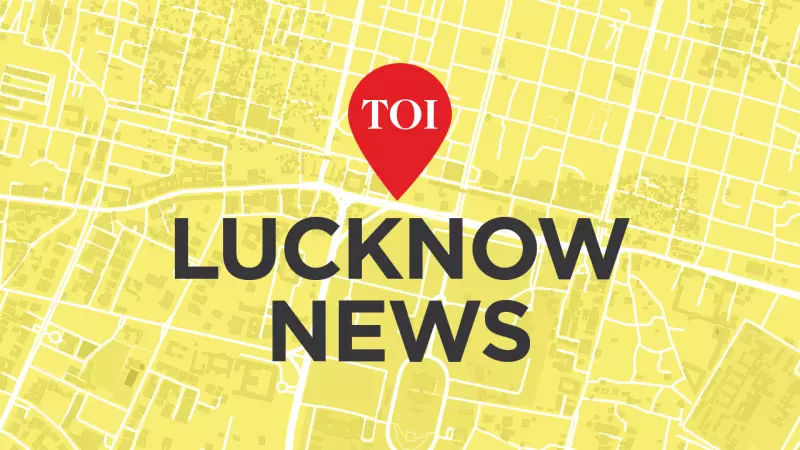
UP Government Strengthens Tribal Communities Through Comprehensive Development Initiatives
Chief Minister Yogi Adityanath declared on Thursday that his administration is fully dedicated to achieving social inclusion, education advancement, and comprehensive welfare for all tribal communities across Uttar Pradesh. The announcement came during the inauguration of the weeklong Janjatiya Bhagidari Utsav, organized to commemorate the 150th birth anniversary of revered tribal leader Dharti Aaba Birsa Munda.
The double-engine government is focused on restoring tribal community pride, preserving their cultural heritage, and enhancing living conditions, stated the Chief Minister during the ceremonial event. He emphasized that this commitment represents a fundamental priority for both state and central administrations.
Commemorating Tribal Legacy and Expanding Educational Opportunities
Honoring Birsa Munda's significant contributions, Chief Minister Adityanath highlighted how the tribal icon spearheaded movements against British colonial rule before his tragic death at merely 25 years in Ranchi jail. Despite his youth, Birsa Munda inspired entire communities with his powerful slogan 'Apna Desh, Apna Raj', noted Yogi, adding that Prime Minister Narendra Modi subsequently declared November 15 as Tribal Pride Day in recognition of this legacy.
The government has organized Janjatiya Gaurav Pakhwada from November 1 to 15, aiming to integrate tribal populations into mainstream society while ensuring dignity and equal opportunities. On November 15, the Chief Minister will participate in major celebrations in Sonbhadra district, which hosts the state's largest tribal population.
Educational advancements show remarkable progress, with over 150,000 ST students benefiting from scholarships and fee reimbursement programs. Currently, nine Ashram Vidyalayas operate across the state, educating 2,026 tribal students, while two free hostels are functional with eight additional facilities under construction.
Comprehensive Welfare Implementation and Infrastructure Development
The administration has implemented extensive welfare measures targeting specific tribal groups including Tharu, Musahar, Chero, Buksa, Saharia, Kol, and Gaur communities. These initiatives ensure access to housing, electricity, drinking water, pensions, ration cards, and Ayushman Bharat healthcare benefits.
Under the PM JANMAN initiative, development reaches tribal areas with notable success in Bijnor district where 815 families, including 145 Buksa tribal families, received approvals for PM Awas homes. The comprehensive package includes household electrification, drinking water facilities, mobile medical units, anganwadi centers, mobile towers across five settlements, and five multipurpose centers.
Through the Dharti Aba Janjati Gram Utkarsh Abhiyan, all Scheduled Tribe settlements receive essential facilities across 47 blocks and 517 villages spanning 26 districts. Significant coverage includes 176 villages in Sonbhadra, 61 in Ballia, 36 in Lalitpur, and 34 each in Deoria, Lakhimpur Kheri, and Kushinagar.
Welfare scheme implementation includes multiple benefits:
- Aadhaar registration and Ayushman Bharat healthcare cards
- PM Ujjwala Yojana for clean cooking fuel
- Caste and residence certificate facilitation
- Financial inclusion through Mudra Yojana and PM Jan Dhan Yojana
- Agricultural support via Kisan Credit Card and PM Kisan Samman Nidhi
- Skill development through PM Vishwakarma Yojana
- Ration card distribution for food security
Employment Achievements and Cultural Celebrations
Demonstrating tangible progress in tribal employment, all reserved positions for Scheduled Tribes in the recent recruitment of 60,244 police personnel were successfully filled, indicating growing educational advancement and community participation.
The Forest Rights Act implementation across 13 districts has granted land rights to 23,430 ST families, providing economic security and property ownership. Educational infrastructure expands with Eklavya Model Residential Schools operational in Lakhimpur Kheri, Bahraich, and Sonbhadra, plus an additional facility developing in Lalitpur.
Non-residential tribal girls in classes 6, 9, and 11 receive support through free uniforms and bicycles, reducing educational barriers. The ongoing Janjatiya Bhagidari Utsav features cultural performances by artists from 22 states, alongside handicraft exhibitions, food fairs, and literary forums dedicated to tribal literature and development discussions.






